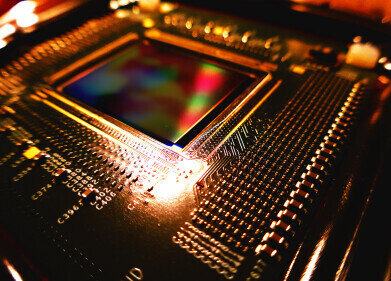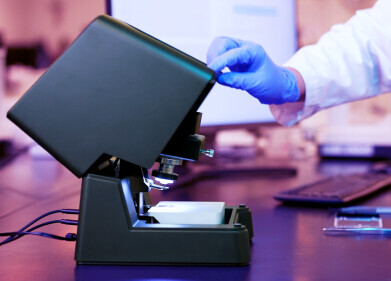Microscopy & Microtechniques
New nanotechnology method reveals surprising results
Dec 20 2011
A significant step forward in the mechanics of controlling chemical reactions has been made by UCLA physics professor Giovanni Zocchi and former UCLA physics graduate student Yong Wang, who have discovered an isolated protein molecule is neither a solid nor a liquid.
The discovery is being hailed as a nanotechnology feat, as a new method allowed them to apply stresses and probe the mechanics of the protein without destroying it. Zoochi and colleagues have made significant steps towards a new approach to protein engineering in previous research, creating a nanoscale mechanism to externally control the function and action of a protein in 2005, as well as creating a first-of-its-kind nanoscale sensor using a single molecule less than 20 nanometers long in 2003.
The results of the latest study discovered a "transition to a viscoelastic regime in the mechanical response" of the protein.
Professor Zocchi commented:"Below the transition, the protein responds elastically, like a spring.
"Above the transition, the protein flows like a viscous liquid. However, the transition is reversible if the stress is removed. Functional conformational changes of enzymes (changes in the shape of the molecule) must typically operate across this transition."
Digital Edition
ILM 49.5 July
July 2024
Chromatography Articles - Understanding PFAS: Analysis and Implications Mass Spectrometry & Spectroscopy Articles - MS detection of Alzheimer’s blood-based biomarkers LIMS - Essent...
View all digital editions
Events
Jul 30 2024 Jakarta, Indonesia
Jul 31 2024 Chengdu, China
ACS National Meeting - Fall 2024
Aug 18 2024 Denver, CO, USA
Aug 25 2024 Copenhagen, Denmark
Aug 28 2024 Phnom Penh, Cambodia











24_06.jpg)






